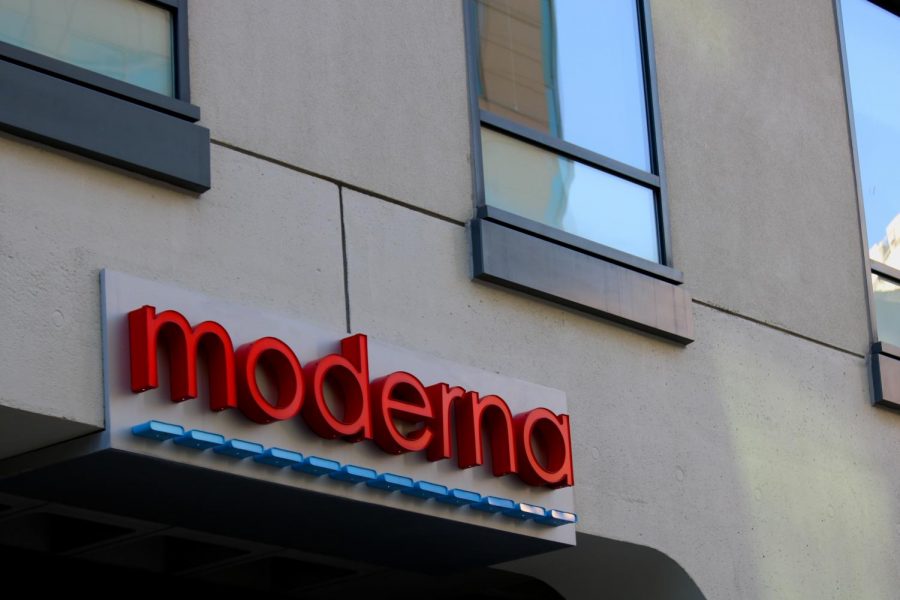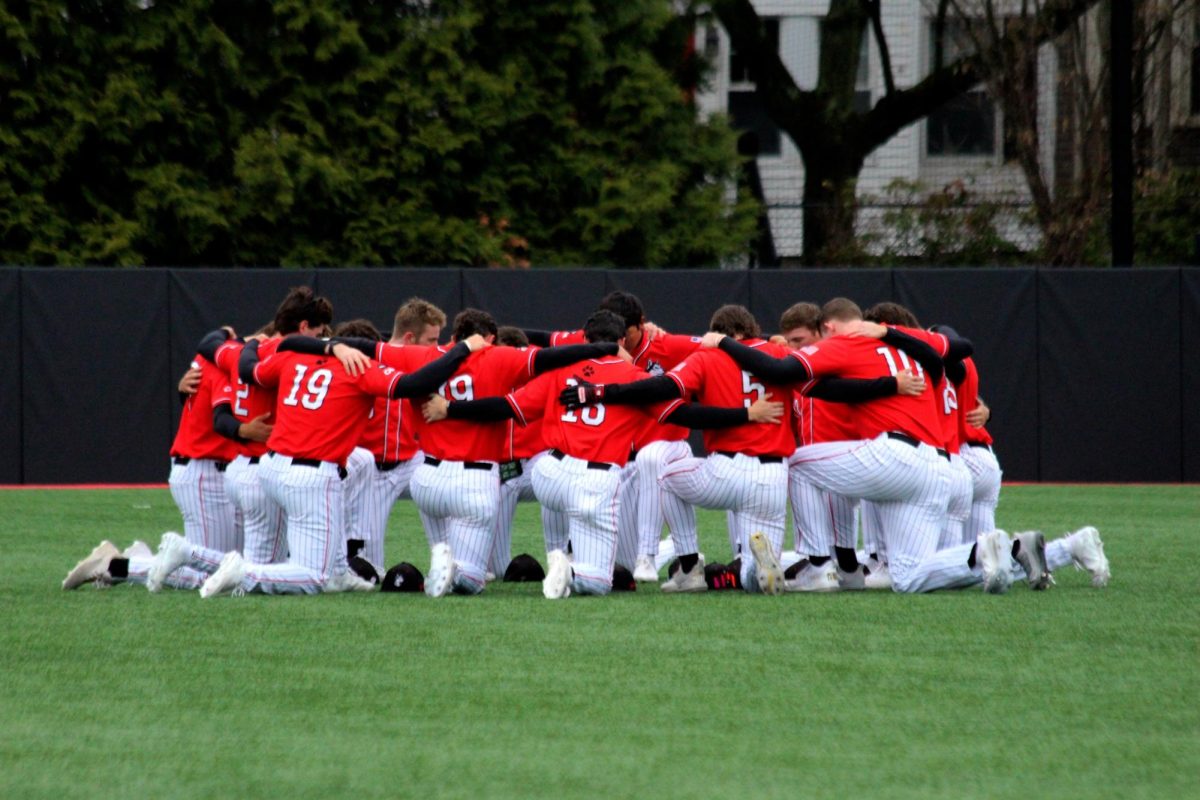Northeastern partners with Moderna to establish fellowship
For the next two years, Javid Iqbal, a postdoctoral research fellow at Northeastern, will work at Moderna with the goal of revolutionizing drug development.
April 1, 2021
In many regards, academia and industry are remarkably separate — students learn things in the classroom that they may never apply in industry. For postdoctoral research fellow Javid Iqbal, however, the worlds will soon collide.
Northeastern University has teamed up with Moderna — a Cambridge-based biotechnology, or biotech, company — to research drug discovery, development and delivery.
“It’s a novel partnership between an academic institution and a biotechnology company to try to expedite [the] drug development process using machine learning, artificial intelligence and data analysis,” said Mansoor Amiji, Iqbal’s academic mentor and adviser.
Over the next two years, Iqbal will work at Moderna while being a postdoctoral research fellow at Northeastern. He will use big data to help revolutionize the development process of drugs, a process that Amiji said usually takes many years and can cost billions of dollars.
Iqbal said the relationship between research fellows and Moderna is mutually beneficial: NU provides human resources to the industry, and in turn, the industry prepares people for a career in biotech. Additionally, Iqbal said he’s set to get a head start on adjusting to the fast-paced environment, as people typically require training and time to adapt to the work atmosphere.
“It’s the rarest of the rare chance that I will get a direct chance to work with Moderna,” Iqbal said. “That means you get an insight into how things work at the industrial level. Usually we don’t have that insight, and we have no idea how things actually work at the industrial level, so I will be having first-hand experience.”
Husain Attarwala is the director and head of clinical pharmacology and pharmacometrics at Moderna. He graduated from Northeastern with a master’s degree in 2011 and a doctoral degree in 2016, both in pharmaceutical sciences. Now, he oversees Iqbal.
“With academia, you learn all of this, but then where do you go and apply it? So that is where it comes to industry,” Attarwala said. “We have — at Moderna — a wide variety of programs, ranging from therapeutics to vaccines, and we have the science and technology and finance to run actual clinical studies.”
Attarwala said he’s excited to see where the project can go and what it can do for Iqbal’s career.
“Students, by nature, they’re very much curious. One of the core values at Moderna is curiosity. So we try to bring those curious minds into our business,” Attarwala said.
The partnership between Northeastern and Moderna is especially relevant today, since the pandemic has exposed flaws in the current drug development system.
“What the pandemic has enforced on all of us is that in certain instances, expediency and being able to be more efficient is extremely important and especially the vaccine development effort in the case of the pandemic,” said Amiji, a university distinguished professor in pharmaceutical sciences and chemical engineering. “We don’t have that luxury in some of these areas so we need to find a faster, more efficient and cheaper way to get drug development and that’s really what this partnership is designed to do.”
Iqbal’s task during this project will be to use big data from clinical trials to evaluate the drug development process and hopefully decrease the cost and time needed.
“What we are trying to do here is not one single discipline — it’s not mathematics; it is not biology. It is not just pharmacology, but it is [the] integration of different disciplines,” Attarwala said.
Though the last year has seen unprecedented speed in the development of COVID-19 vaccines, a process Amiji said would normally have taken at least 10 years, the overall drug development process has yet to change.
“One common thread amongst all science is that we never accept what is the current as the best case,” Amiji said. “What we are trying to do with this collaboration is trying to come up with ways of thinking that say, ‘What else can we do even better?’”
Amiji said he hopes this partnership opens up the doors to partnerships with other companies in and around Boston.
For Iqbal, this fellowship is an opportunity to apply his previous knowledge and use it to make real change in industry.
“Usually you see that they are disconnected; whatever happens in academia is altogether different than what happens in the industry,” Iqbal said. “If you want to align them and see them working together, you have to find a connection between the two. And I guess that this fellowship is the right connection between academia and Moderna.”







